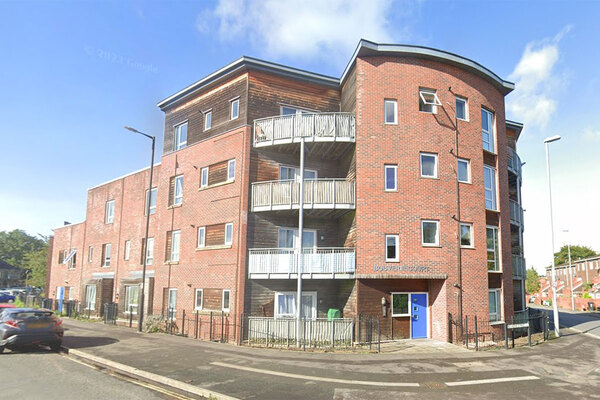You are viewing 1 of your 1 free articles
Why supported housing regulation needs a wholesale review
As the sector works to adapt regulations for general needs housing, we need to make sure supported housing rules are also fit for purpose, writes Sarah Murphy, head of customer service at Worthing Homes

Supported housing sits at the misaligned intersection of a whole raft of legislation, regulation and expectation, most of which was not written with supported housing in mind. Intersection is the wrong word; it’s a spiderweb of outdated and often contradictory requirements, leaving small providers snared up, desperately trying to work out which way is up and how to get out.
At a time where many services are being decommissioned, the housing benefit (HB) rules and supported housing definitions are too black and white. They fail to recognise that although support funding may stop overnight, a person’s tenancy endures. The name we give to this arrangement (supported/general needs) changes, but the material facts of the support need and costs of housing provision stay completely unchanged.
Commissioners should be giving the exit strategy from support contracts the same thought and planning as the mobilisation. Likewise, the Department for Work and Pensions (DWP) needs to work on housing benefits by recognising a fair transitional period when support contracts are decommissioned.
Housing benefit definitions are complicated, outdated and haven’t been revised to recognise newer models of supported housing. It doesn’t recognise, for example, fragmented arrangements where commissioned extra-care support has morphed into personal carers paid for via personal budgets, but where the commissioning authority still needs the building designated specifically to house a particular client group.
I’ve had the wonderful experience this year of working in a truly collaborative way with our NHS trust to develop a model of supported housing for patients open to the enhanced community rehab team. The tenants will be referred by the NHS and supported for up to three years in their accommodation by NHS staff with an enhanced housing management offer from us. The NHS recognises that a key factor in their patients recovery will be the provision of a decent and stable home, but HB definitions do not.
“The sector has risen to the challenge of innovating, but risks coming unstuck if the legislation that governs it doesn’t account for and legitimise those unique and varying arrangements”
The state of the current housing crisis is such that lack of good-quality housing is an exacerbating factor in the support needs of such a wide range of people. On paper, the difference between a housing-related support need and a support and housing need sounds like semantics; in reality the difference is vast.
The HB rules were written at a time when such a deep housing crisis did not exist. Nowadays so many people are insecurely housed that stable accommodation must be found before any other support needs have a hope of being addressed. How can someone focus on their well-being and emotional needs when they are in a constant state of worry about their precarious living arrangements?
In the case of our new supported housing collaboration with the NHS, I don’t doubt that anyone would consider the spirit of the service as ‘supported’, however it doesn’t fit neatly into any of the HB definitions. Specifically, it is hard to argue that the support is linked to the accommodation when support from the enhanced community rehab team is also open to many people who won’t be housed under our scheme (ie the support is not conditional on the accommodation).
It’s a worry if the Supported Housing (Regulatory Oversight) Act isn’t introduced in a way that respects and understands the nuances that make up the genuine supported sector. Certainly there’s a worry that as the bill progresses, more HB teams will become harsher and more black and white in their application of the current rules.
“The state of the current housing crisis is such that lack of good-quality housing is an exacerbating factor in the support needs of such a wide range of people”
The sector has adapted and innovated to survive in an exceptionally difficult operating environment. The result is a plethora of highly unique and bespoke arrangements. Particularly in light of the oversight and scrutiny regime, a wholesale review of supported housing and all of the legislation and regulation governing it needs undertaking. The sector has risen to the challenge of innovating, but risks coming unstuck if the legislation that governs it doesn’t account for and legitimise those unique and varying arrangements.
Different requirements need to align so that providers don’t risk failing one piece of regulation while trying to overcome another requirement or existential hurdle. One consistent and up-to-date definition needs to be found to describe the essence of supported housing, and this needs aligning with revised housing benefit, regulatory and legal requirements.
Think of all the innovative services the sector could dream into being if we weren’t trying to navigate the conflicting and restrictive parameters of the current disjointed regulation.
Sign up for our care and support bulletin

Already have an account? Click here to manage your newsletters







